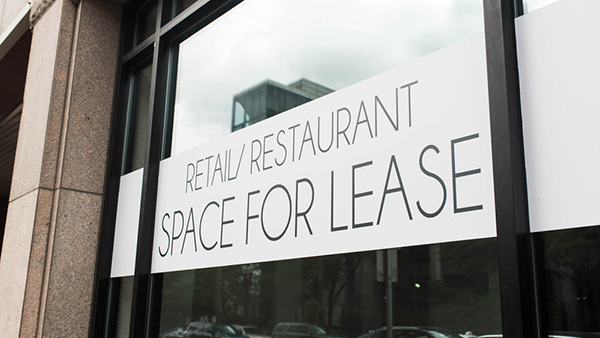New York City mayor Bill de Blasio is worried about storefront vacancies in his city, and he believes a “vacancy tax” on the property owners might solve the problem. “I am very interested in fighting for a vacancy fee or a vacancy tax that would penalize landlords who leave their storefronts vacant,” he said on a local news station. He speculated that vacancies are high because those landlords “are looking for some top-dollar rent but they blight the neighborhood by doing it.”
The mayor attributes his high-dollar rent hypothesis to double-digit vacancies occurring in prosperous Manhattan neighborhoods. At least one commercial real estate executive agrees. “It’s the opposite of what you would expect. There is a real estate boom going on for the last 20 years,” said Louis Puopolo of Douglas Elliman Commercial. “These wonderfully overpriced, beautiful properties sit over empty spaces for years.”
Last October, an analysis of Soho commercial space by The Real Deal revealed that investors who purchased $940 million worth of retail-focused buildings, condominiums, and cooperative units in Soho since 2011 have left the retail side of many of those buildings vacant. Those vacancies, which span 40 properties in the high-end area, represent more than 163,000 square feet of retail space. Tenants have proved unwilling to pay expensive rates, which climbed as high as $890 per-square-foot in 2014 and have since fallen nearly $80 to $812. “Many tenants still aren’t signing up. If they are, it’s for short-term deals as they struggle with an unpredictable economy and the rise of online retail,” observed Real Deal reporters Adam Pincus and Lucas McGill.
Not surprisingly, commercial brokers are not happy about the proposed taxes or the accusations of deliberate vacancies. “I have never met a single [landlord] that thinks, ‘Let’s keep it vacant and I am confident that rents will go up in the next few years,’” declared Steven Soutendijk, an executive managing director at Cushman & Wakefield. “There is almost no justification for keeping your space vacant,” he added, noting that vacant ground-floor real estate is not good for upper-level residential spaces either. Several brokers also warned that tenants would end up paying for de Blasio’s tax, since landlords would have to raise rents to offset the costs of the penalties.
TerraCRG’s Peter Schubert pointed out there are reasons to keep a retail space vacant that are far from nefarious. “People…don’t know what is happening behind the scenes,” he said. Landlords might have plans to redevelop an entire property or renovate their buildings. This may not be evident because these processes require renegotiations with existing tenants and other permits before the process can begin.
Investor Insight: Monitor this proposal and its effects on the local real estate market and investors closely. This policy could come to your investment properties and markets as well.
























0 Comments